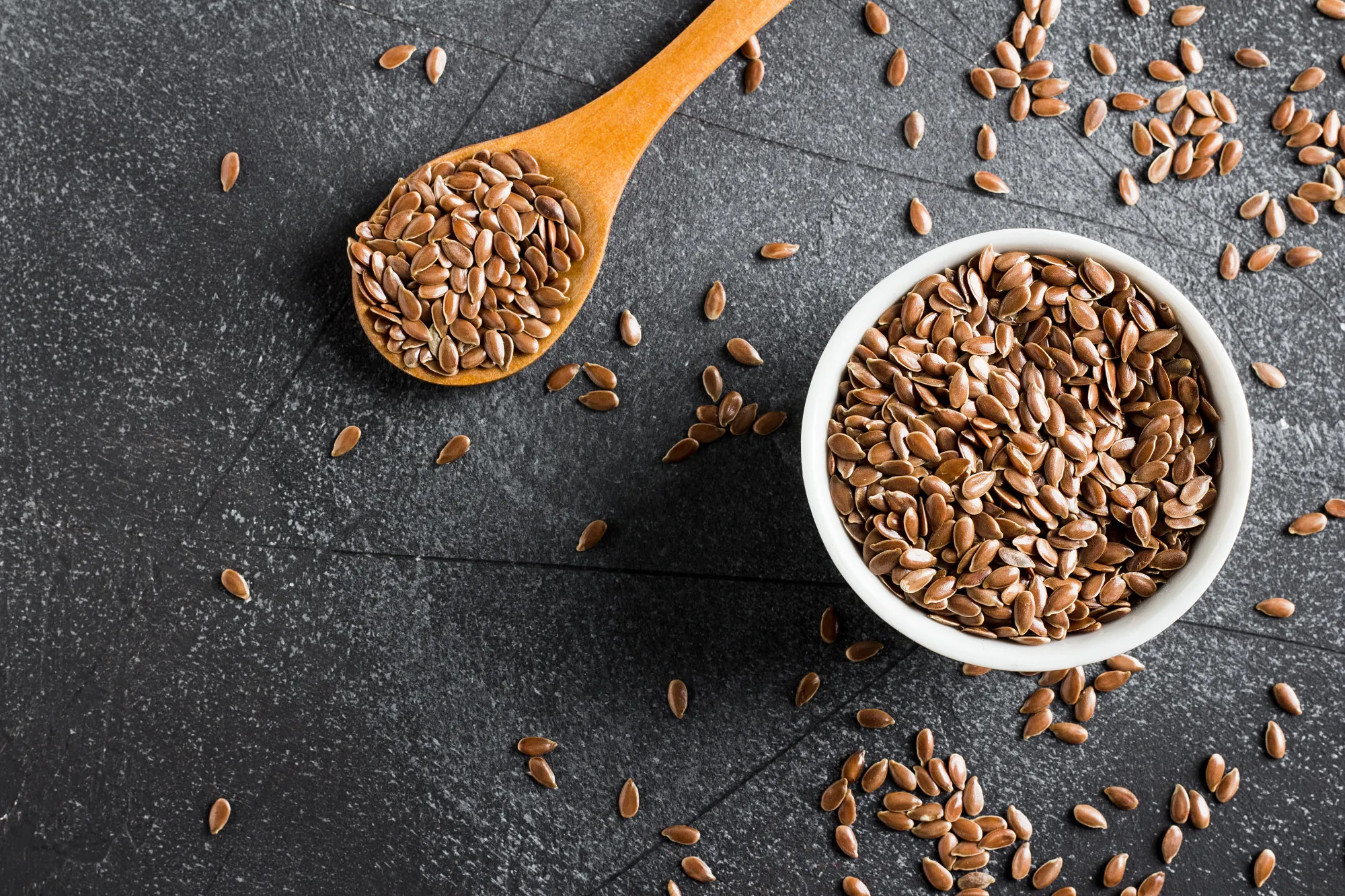Cancer is a leading cause of death worldwide, bringing significant morbidity and mortality across various populations. Shaped by a multitude of socioeconomic, environmental, and lifestyle factors, the prevalence of cancer underscores an urgent need for improved strategies for prevention and treatment. In the quest for natural and effective antitumor interventions, the interest in phytochemicals, such as plant polyphenols, has surged. These compounds are renowned for their anticancer, anti-inflammatory, antiviral, antimicrobial, and immunomodulatory effects, which directly contribute to promoting human health. This review aims to summarize substantial research contributions on the chemistry, pharmacokinetics, and molecular targets of flaxseed lignans, mainly secoisolariciresinol diglucoside (SDG) and its metabolites, enterolactone and enterodiol, which have emerged as promising dietary polyphenols in cancer prevention and therapy.
Chemistry of Flaxseed Lignans
Flaxseed (Linum usitatissimum), a rich source of the class of dietary polyphenols known as lignans, is gaining attention in the field of oncology (Saarinen et al., Nutrients 2010; DOI: 10.3390/nu2020099). The principal lignan in flaxseed, SDG, is converted by intestinal bacteria into enterolactone and enterodiol, compounds that hold significant therapeutic potential. These conversions are pivotal for the biological activity of lignans in humans, suggesting that gut microbiota plays an essential role in harnessing the benefits of lignan ingestion (Kezimana et al., Front. Genet. 2018; DOI: 10.3389/fgene.2018.00641).
Pharmacokinetics and Molecular Targets of Flaxseed Lignans
Secoisolariciresinol diglucoside and its metabolites are absorbed and metabolized in the body through complex pathways. They interact with various receptors like estrogen receptors and can modulate key proteins involved in cell growth and apoptosis (Thompson et al., Carcinogenesis, 1996; DOI: 10.1093/carcin/17.6.1373). Recent evidence points to the role of lignans in altering signal transduction pathways, affecting crucial factors such as NF-κB and VEGF, therefore impacting cancer cell proliferation and angiogenesis (De Silva et al., Pharmaceuticals (Basel), 2019; DOI: 10.3390/ph12020068).
Potential for Use in Combination with Cancer Chemotherapies
The multifaceted nature of flaxseed lignans presents a unique opportunity to use these compounds alongside conventional cancer chemotherapies. Their ability to target various cell signaling pathways means they could complement chemotherapeutic agents, potentially improving efficacy and reducing side effects (Zhang et al., Br. J. Nutr. 2008; DOI: 10.1017/S0007114507871649). For instance, lignans have shown promise in sensitizing cancer cells to chemotherapy-induced apoptosis by modulating drug resistance pathways (Prasad, J. Cardiovasc. Pharmacol., 2009; DOI: 10.1097/FJC.0b013e3181af04e5).
Role in Enhancing Quality of Life
Beyond their direct anticarcinogenic effects, flaxseed lignans have been associated with improved quality of life in cancer patients. They have been found to exert beneficial effects on health markers that are often compromised during cancer treatments, such as lipid profiles, inflammatory markers, and overall metabolic health (Calado et al., Front. Nutr., 2018; DOI: 10.3389/fnut.2018.00004). Additionally, lignans may mitigate some of the side effects of cancer therapies, offering a better treatment experience for patients (Wang et al., Int. J. Cancer., 2005; DOI: 10.1002/ijc.21067).
Conclusion
The body of literature encompassing flaxseed lignans demonstrates their vast potential as dietary polyphenols in oncology. While the evidence supports their beneficial effects in cancer prevention and adjunct treatment, further translational research and clinical studies are indispensable to firmly establish their roles as natural health-promoting agents in oncology.
DOI: 10.3390/ph12020068
References
1. Saarinen N.M., Tuominen J., Pylkkänen L., Santti R. Assessment of Information to Substantiate a Health Claim on the Prevention of Prostate Cancer by Lignans. Nutrients. 2010;2:99–115. doi: 10.3390/nu2020099.
2. Kezimana P., Dmitriev A.A., Kudryavtseva A.V., Romanova E.V., Melnikova N.V.. Secoisolariciresinol Diglucoside of Flaxseed and Its Metabolites: Biosynthesis and Potential for Nutraceuticals. Front. Genet. 2018;9:641. doi: 10.3389/fgene.2018.00641.
3. Thompson L.U., Rickard S.E., Orcheson L.J., Seidl M.M. Flaxseed and its lignan and oil components reduce mammary tumor growth at a late stage of carcinogenesis. Carcinogenesis. 1996;17:1373–1376. doi: 10.1093/carcin/17.6.1373.
4. Zhang W., Wang X., Liu Y., Tian H., Flickinger B., Empie M.W., Sun S.Z. Dietary flaxseed lignan extract lowers plasma cholesterol and glucose concentrations in hypercholesterolaemic subjects. Br. J. Nutr. 2008;99:1301–1309. doi: 10.1017/S0007114507871649.
5. Prasad K. Flaxseed and cardiovascular health. J. Cardiovasc. Pharmacol. 2009;54:369–377. doi: 10.1097/FJC.0b013e3181af04e5.
6. De Silva S., Franklyn S.F., Alcorn J. Flaxseed Lignans as Important Dietary Polyphenols for Cancer Prevention and Treatment: Chemistry, Pharmacokinetics, and Molecular Targets. Pharmaceuticals (Basel, Switzerland). 2019;12(2):68. doi: 10.3390/ph12020068.
7. Calado A., Neves P.M., Santos T., Ravasco P. The Effect of Flaxseed in Breast Cancer: A Literature Review. Front. Nutr. 2018;5:4. doi: 10.3389/fnut.2018.00004.
8. Wang L., Chen J., Thompson L.U. The inhibitory effect of flaxseed on the growth and metastasis of estrogen receptor negative human breast cancer xenograftsis attributed to both its lignan and oil components. Int. J. Cancer. 2005;116:793–798. doi: 10.1002/ijc.21067.
Keywords
Flaxseed lignans, Cancer prevention, Chemotherapy, Molecular targets, Pharmacokinetics, Quality of life, Dietary polyphenols, Cardioprotective, Chemoprevention, Bioavailability
